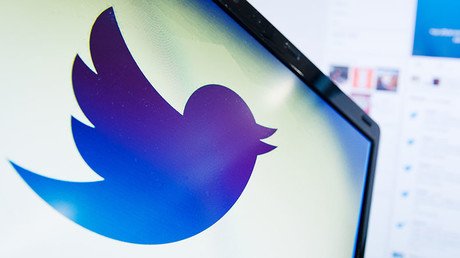How to steal a billion-dollar American election with a pocketful of rubles

For the next two days, the titans of social media will explain to stony-faced members of the Senate Judiciary Committee's Panel on Crime and Terrorism exactly how Russia purchased the 45th President of the United States for just pennies on the dollar.
Although Russia jumped on the democratic bandwagon rather late in the game, it appears that Russian political technologists are already light-years ahead of the wolf pack when it comes to the election process, which - let’s be honest - has always been a tainted affair, even in fairy-tale Western capitals.
While US lobbyists are cunning enough to hedge their bets on both horses in every race, or join some shady Super PACs to get maximum bang for the buck, nobody has been able to determine - with absolute, rock-solid certainty - the outcome of any political contest.
That is, until now.
At this point, the more incredulous readers may wish to have a seat because the following news will send spasms of shock and awe to the very core of your democratic being.
Russia, the erstwhile ‘evil empire’ that only recently shook off the dusty cobwebs of communism, has mastered the democratic game of thrones with such impeccable precision that it is now able to buy any political candidate for about the going price of a German sports car, or a Spanish villa - take your choice, it's a consumer paradise. Despite considerable efforts to conceal the secret from annoying interlopers, the proverbial cat is out of the bag.
Consider Mark Zuckerberg’s Facebook, a veritable global warehouse of friends, photos and likes that the free world apparently can’t live without. After all, how else would we know what our friends had for dinner last night? But more to the point. Beginning on October 31 - apparently to achieve maximum Boo! effect - company executives will have to explain, with perfectly straight faces, that 'Russia-linked' election-related posts (whatever that means) comprise less than one percent of all such posts.
In other words, out of Facebook's massive influx of ad content, ‘Russia-linked’ election posts amount to one in 23,000 posts, or some 0.004 percent of overall content. It's difficult to fathom that such a negligible influence could have the slightest impact on the billion-dollar, barnstorming US elections. This should teach them to never underestimate Russian resourcefulness!
The Nobel literature prize should go to Russian Twitter accounts because apparently they have superhuman writing skills that control minds.
— Karl Sharro (@KarlreMarks) October 31, 2017
Russia’s ability to steer the outcome of the 2016 US election becomes even more fantastic when we realize that more than half of the ads were posted on the social media platform after the election was over. Yes, that's right, when the legendary fat woman was already singing. The social media giant also admitted that “25 percent of the ads were never shown to anyone.”
Needless to say, Russia is now the envy of every lobbyist and campaign manager on K Street, and that may explain why the US refuses to provide a shred of evidence that pulls back the curtain on this “Russian collusion.” This information is just too damn valuable and could wreck the billion-dollar lobbying industry overnight. Eureka! Russia has found a way to take the unpredictability out of US elections, and save a lot of corporate dollars at the same time!
In an effort to deny Russia its victory parade, however, Facebook would only say the accounts were “likely operated out of Russia.” That statement is lamentable. After all, having spent so much time and effort devising such dirt-cheap and ingenious methods of manipulating the electoral process, would it be expecting too much to come out and acknowledge Russia’s rightful place in the rogue’s gallery of political chicanery? Alas, this appears to be the case.
Remember that last month, Twitter said they'd only discovered 201 Russian-linked accounts. https://t.co/w2UKVAuR08
— Caroline O. (@RVAwonk) October 31, 2017
With disturbing predictability, Russia is written off as a basket case every time it tries to do something remotely positive - from hosting the Olympics, to intervening against terrorists. But now that Russia has finally found its true calling – buying Western leaders for a fraction of the going price - nobody wants to acknowledge the debt! To paraphrase the journalist Greg Palast, 'is this the best democracy money can buy?' Certainly not!
Facebook General Counsel Colin Stretch called Russia’s drop in the proverbial bucket a "new threat,” which, to be perfectly honest and humble, is probably about the same paltry amount one would expect to find from Lithuania, Libya or Latvia, although nobody ventured to study the cash flow emanating from those countries into the lily-white US political system, nor many others. The obvious question is: why?
Because quite simply we are talking about ‘Russian influence’ and who could deny the dark and dangerous connotations that delicious-sounding phrase conjures up? ‘Russian influence.’ Ah, yes, the way it rolls off the tongue has an almost hypnotic effect and is enough to make an American Neocon want to bomb something, anything. Indeed, as far as a political marketing tool, ‘Russian influence’ is second to none.
But we are getting ahead of ourselves.
There is also the question of Russia’s minuscule yet muscular presence on Twitter, which Donald Trump used with tremendous effect during his presidential campaign. In fact, he admitted he would not have ascended to the Oval Office without it.
“Tweeting is like a typewriter – when I put it out, you put it immediately on your show,” he told the Fox Business Network channel. “When somebody says something about me, I am able to go bing, bing, bing and I take care of it. The other way, I would never get the word out.”
And millions of other Twitterati feel exactly the same way. Bing, bing, bing! Yet somehow only Russia had the brains to steal an entire presidential election with the help of the platform. Again, at unbelievably low prices.
Twitter probably won’t relieve the jittery nerves of the Russian inquisition any time soon, despite a September report that stated: “Based on our findings thus far, RT spent $274,100 on US ads in 2016. In that year, the @RT_com, @RT_America, and @ActualidadRT accounts promoted 1,823 Tweets that definitely or potentially targeted the US market."
Donald Trump probably tweets that many messages before lunch.
In any case, despite these very slim findings, which is nothing more suspicious than the free market at work, Twitter banned all ads from RT and Sputnik, citing "election interference." While doing so, however, it failed to inform US lawmakers of its own multi-million dollar sales pitch for RT to buy ads during the election in question. Ah, those annoying details.
Google, meanwhile, said it found no evidence RT manipulated video hosting platform YouTube or violated its policies during the 2016 US election campaign. That is certainly not the Russian-made smoking gun that so many had been hoping for.
RT, which is the most-viewed global news network on the platform, actually won rave reviews: “Some have raised questions about the use of YouTube by RT, a media service funded by the Russian government,” the document said. “Our investigation found no evidence of manipulation of our platform or policy violations; RT—and all other state-sponsored media outlets— remains subject to our standard rules.”
Neverthless, many US politicians will be watching the McCarthy-like show trials with great interest, determined to learn how Russia was able to serve as the American ‘king-maker’ in the US political system, placing the crown on the head of a very unlikely candidate, Donald Trump, a real estate developer, for crying out loud.
In any case, it is very doubtful that the assembled US Senators, brought together by a whirlwind of suspicion created out of thin air, will learn anything at all from the deliberations, aside from whatever their vivid imaginations may conjure up.
After all, what else can we expect on Halloween besides more Russophobic-inspired phantoms?
The statements, views and opinions expressed in this column are solely those of the author and do not necessarily represent those of RT.














